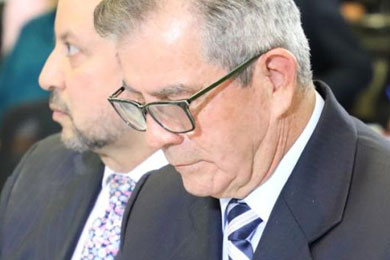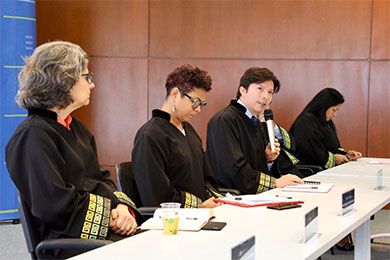Colombia’s controversial former army chief tried to remain silent at the war crimes tribunal on Wednesday, but testified over his role in the mass killing of civilians after learning that silence was not an option.
The decision of retired General Mario Montoya’s to reserve his right not to incriminate himself puts the Special Jurisdiction for Peace (JEP) before major legal and ethical dilemmas.
Montoya vs. the truth
At the beginning of the hearing, Montoya expressed his “surprise” about the court’s “insistent” and “reiterated” questions about his role as army commander.
The general admitted that the extrajudicial killings he allegedly ordered “never should have happened and never should be repeated.” Following a monologue in which he claimed his instructions had been legal he said that was his “contribution to the truth” after which he surprisingly said he remained the right to be silent.
The judges went into recess and announced that they would insist to demand answers about his rise through the army’s ranks and his role as commander.
Montoya and his attorneys responded they would answer, but reserved the right not to incriminate Montoya.
At the end of five hours of hearings, the JEP said that, despite his initial refusal to talk, the general “answered the questions of the magistrates.”
The court’s dilemmas
Montoya is accused of being behind some of the armed conflict’s most gruesome war crimes and has reluctantly vowed to tell the truth. In exchange, he is exempt of any prison sentence and shielded from extradition.
The general, however, appears to believes he can contribute to the truth on his own terms instead of those of the transitional justice system that require him to tell the truth especially if this incriminates him.
This puts the court before a major dilemma as its ultimate goal is to seek the truth.
If the court decides to expel Montoya, he risks a 40-year prison sentence over his alleged role in terrorism, the mass killing of civilians, and ties to drug traffickers and paramilitary war lords.
If the general is expelled, the court will lose any possibility to hear the version of a key player in the degeneration of the conflict to the point it victimized almost 9 million people.
Victims have been skeptical about Montoya’s commitment to the truth from the beginning. While many of the victims that they primarily want to know the truth, few will object to him rotting in prison for the rest of his life.
The general is expected back in court on Thursday for his second of three days of hearings.




